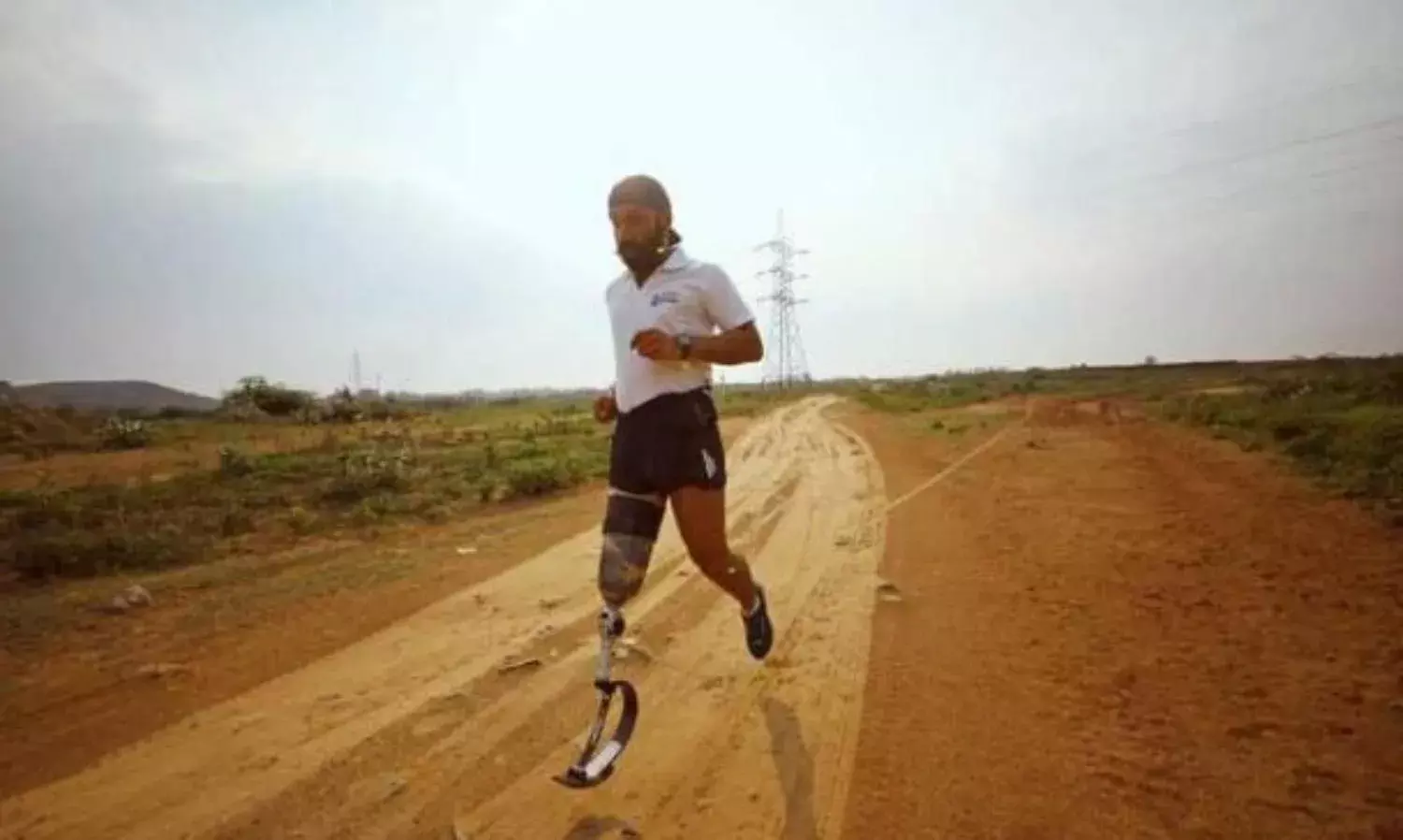No Country For The Disabled
Why hasn’t India, despite its growth, not succeeded in providing the disabled with employment?;

NEW DELHI: Of the 121 crore people in India, 2.68 crore are disabled, accounting for 2.21% of the total population. Amongst them, 56% are males and 44% are females, and a majority of the disabled population belong to the rural areas (Census 2011).
India celebrates itself as the world’s largest democracy and amongst its fastest growing economies -- so a question worth asking is where India’s disabled population fit in in this growth story.
Everytime you stop at a traffic signal, count the number of times a handicapped young man comes to you asking for money; how many times does a blind man approach you for a few rupees. This is a common occurrence anywhere in the country. Be it a station or a temple or a traffic signal or just a busy footpath.
This brings us to the question “Why?” Why, being the world’s largest democracy and on the verge of becoming the third largest economy, have we still not succeeded in trying to provide the disabled with proper employment opportunities? Why haven’t we managed to include the physically disabled in the job providing sector?
The National Policy recognizes the Persons with Disabilities (PWD) as necessary assets to the country. It also aims to provide the PWD with a comfortable atmosphere along with the basic constitutional rights and equal opportunities so that their rights are protected and they are an active participant of the society.
On December 16, 2016, the Lok Sabha passed the “Rights of Persons with Disabilities Bill” which replaced the previously existing “Person with Disabilities Act” of 1995. The Bill met the criteria of the United National Convention on the Rights of Persons with Disabilities (UNCRPD). The Bill recognized Disability as an evolving and dynamic concept. Also, the types of disabilities have been increased from former seven to 21.
The New Act aimed to enhance the Rights and Entitlements of “Divyangjan” and also provide effective mechanism for ensuring their empowerment and inclusion in the society.
The Bill was an important and much needed move in terms of inclusion of the PWD in the society but has it been effective regarding provision of employment and job opportunities? Has the government provided them with any concessions or benefits that will help them be self-sufficient? How many government-funded organizations work towards providing them with basic amenities like food, shelter and most of all, jobs? What has the government done to ensure the inclusion of the PWD in the society as a whole?
The Section 33 of the Persons with Disabilities Act, 3% reservations for persons with disabilities is allocated in identified Government establishments. Under the Scheme of Incentives to the Private Sector for Employment of Physically Challenged Persons, the Government provides the employer’s contribution for Employees Provident Fund (EPF) and Employees State Insurance (ESI) for 3 years, for employees with disabilities including visually impaired persons employed in the private sector on or after 01.04.2008, with a monthly salary upto Rs.25, 000.
Even the Mahatma Gandhi National Rural Employment Guarantee Act (MGNREGA) guarantees employment to rural household adults including persons with disabilities. Under National Rural Livelihood Mission(NRLM), a provision of 3% of the total beneficiaries has been made for persons with disabilities.
Also working alongside these government schemes are NGOs that help the PWDs in becoming self sufficient and work towards their inclusion in the job sector. One such organization is Samarthanam Foundation in New Delhi.
Talking about their work, the Founder and Chairman, Mahantesh GK, said, “Since its inception, the foundation is working on the major programmes like Education, skilling, employment, environment, Cricket for Blind and other programmes for PWDs.”
Asked about whether the organization itself provides these people with employment opportunities, he answered, “40% workforce in Samarthanam out of 550 employees are PWDs. We also encourage and support PWDs to become self-employed.”
The current scenario regarding job opportunities for the disabled, even with the existing schemes, is still disheartening. There is a need for stronger implementation of these schemes and more incentives to encourage the PWDs to become self-sufficient and not resort to the streets as their only option.

